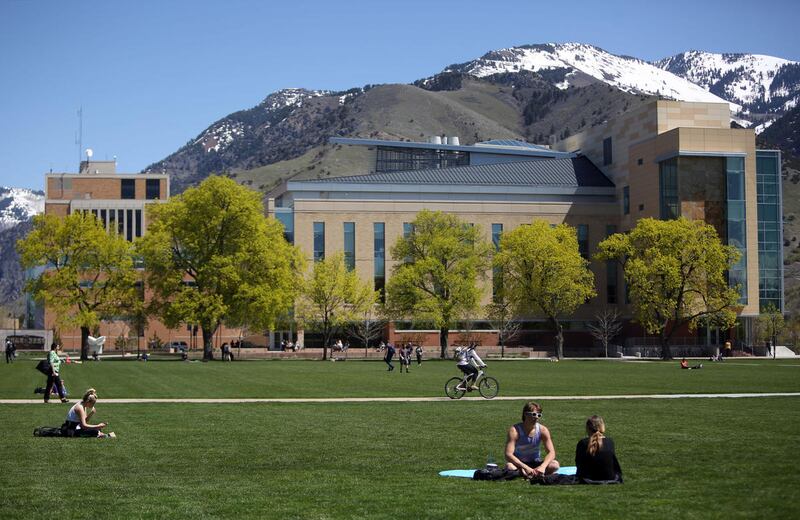It is imperative that state public colleges and universities increase and maintain accessibility for students to earn a postsecondary credential. But accessibility means more than just making college available so students get into college — accessibility means making the entire college process as equitable as possible so students who need individual support receive it leading up to, throughout and even after they graduate.
Studies have shown that individual lives and entire communities are enhanced by increased attainment of postsecondary credentials. Our system of public colleges and universities is working to make sure that people from all walks of life, in all communities across the state, have an equitable college experience for heightened success in life.
This past year, Utah State University’s Center for Persons with Disabilities made great strides to increase accessibility, create a more inclusive community and improve the lives of individuals with disabilities and their families.
Housed within the Emma Eccles Jones College of Education and Human Services, the center and its staff worked on 114 different projects during 2018-19, delivering training, conducting research and providing technical assistance in five countries, 24 U.S. states and territories and every county in Utah.
The center increased its on-campus efforts by teaching 28 courses, which reached over 800 students in seven departments, generating more than 1,500 credits. Hundreds of other students took part in short-term Center for Persons with Disabilities training efforts and gained real-life experience by taking part in the center’s programs and employment opportunities. These educational efforts are creating a direct pipeline into the workforce for interdisciplinary professionals and leaders in social services fields.
While each public college and university in the state has its own version of a department for accessibility services, Utah State University serves as the state’s federally designated University Center for Excellence in Developmental Disabilities. As such, USU’s center focuses on more than just its student population. It extends its services to all children and adults with disabilities, with the hope and vision that every American can participate and be independent, productive, and included within their communities.
USU’s center facilitates the flow of disability related information between communities and the university. There are currently 67 University Centers for Excellence in Developmental Disabilities across the U.S. (at least one in every U.S. state and territory). In addition to working with those with disabilities and their families, the center also works with state and local government agencies, community providers, nonprofit organizations, schools and professionals to ensure that the most up-to-date education, research, assistance and services are accessible.
Last year, new projects by USU’s Center for Persons with Disabilities strengthened efforts in the areas of mental health issues, employment supports for people with disabilities and literacy.
More than 13,000 professionals received technical assistance through the center’s programs on topics such as disability policy, inclusive education, cultural and linguistic competence, employment and community integration. Moreover, 217 individual job-seekers with disabilities received help securing or maintaining meaningful employment in the community.
In all, more than 4,000 individuals of all ages received specialized services through a variety of clinics, home visits, assistive technology fabrication and repair and other inclusive community programs.
The USHE Regents applaud Utah State University’s efforts to increase accessibility and improve services for people with disabilities including our students, local communities and individuals abroad. We also applaud other USHE institutions’ efforts to make their campuses more accessible, and we look forward to supporting them in their efforts to impact students’ lives for the better.
Dave R. Woolstenhulme is the interim Utah commissioner of higher education.

